What CAFOD is doing in the Gaza Strip
Olwen Maynard has been working on CAFOD’s Middle East Desk since 2006. Here, she looks back at what the generosity of CAFOD’s supporters made possible in the two years following the last major military offensive.
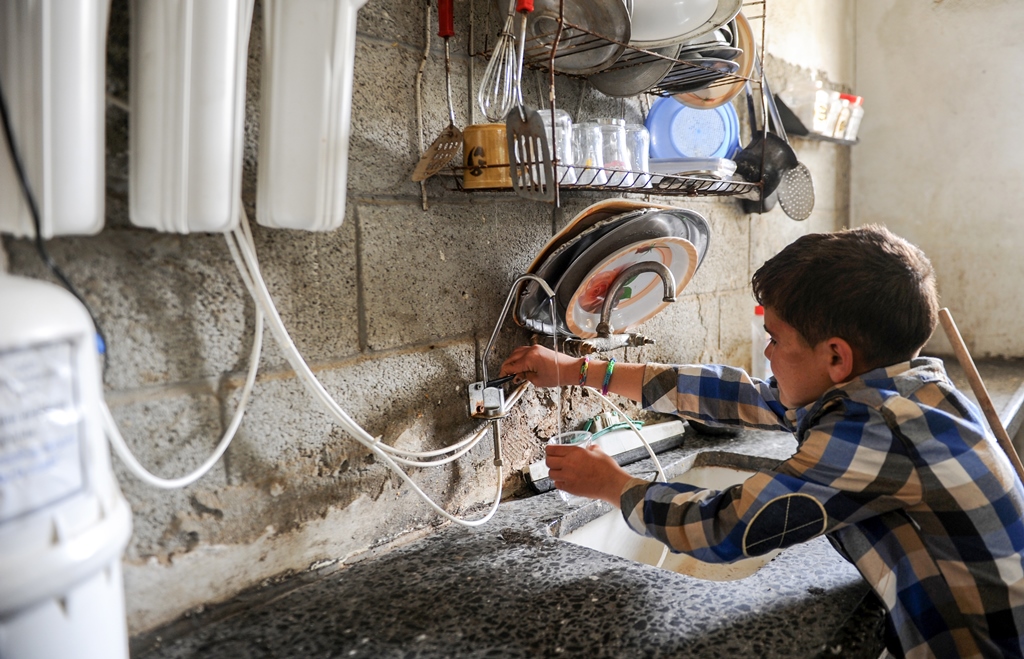
A cup of clean water
Gaza’s tap water is heavily contaminated and dangerous, but buying bottled water is expensive, and can mean having to cut down on food. CAFOD has been working since 2013 with Islamic Relief to provide Reverse Osmosis Units to poor women-headed families, so they can filter their water and make it safe for drinking and cooking. Over the two years since the 2014 airstrikes, which caused massive further damage to the water supply infrastructure, the project has been extended to another 220 families and also to 65 kindergartens, providing clean water for thousands of children, along with hygiene education to help them stay healthy.
Please give to our Advent appeal to help more people around the word
Operation Protective Edge
Before, during and after ‘Operation Protective Edge’ in 2014, in which Israel responded to Hamas rocket attacks by subjecting Gaza to fifty days of repeated airstrikes and ground attack, my team and I were responsible for channelling your donations to the territory to alleviate the suffering of the civilian population.
Courageous staff of partner organisations which were based in the Strip, or able to move in and out, risked their lives during the hostilities to save others.
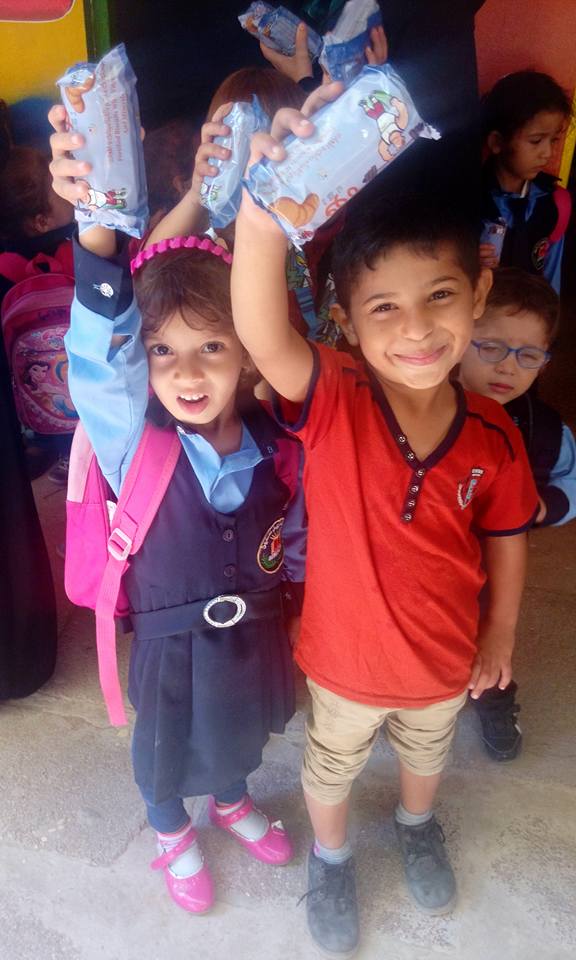
Emergency treatment and special biscuits
Caritas Jerusalem operates a well-regarded health centre in the heavily populated Beach Camp area of Gaza City, from which a mobile clinic regularly makes its rounds to deliver services where needed throughout the Strip.
During Operation Protective Edge, your donations enabled the health centre and mobile clinic to continue operating, delivering medical support to displaced people sheltering in school buildings. Thanks to you, the clinic staff were able to treat 5,831 patients.
Both the health centre and the mobile clinic have continued to play a vital role since the ceasefire, carrying out health screening for over 3,000 children, a third of whom were identified as anaemic.
You helped to provide special nutritional biscuits for these children. The biscuits had to be ordered and made specially, but since the six-month feeding programme began in early 2016, parents have reported that their children who were tired and listless are now lively and energetic.
Donate to our Advent appeal to help more children around the world
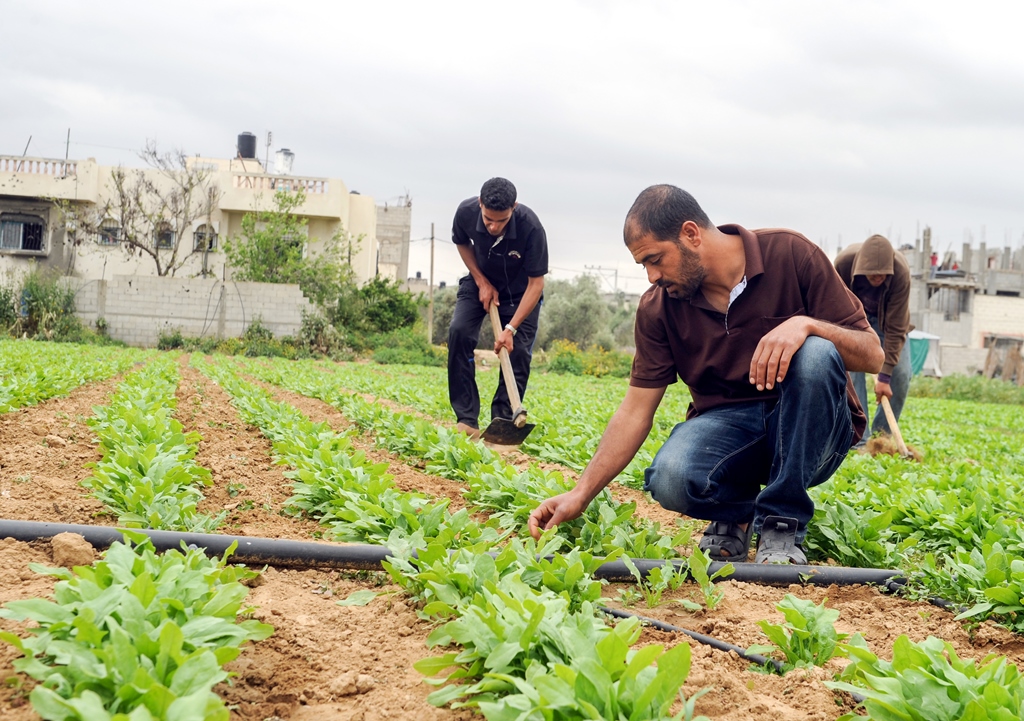
Re-greening Gaza
Farming has always been a very important part of Gaza’s economy: the climate is ideal for growing fruit, vegetables and flowers. But Operation Protective Edge devastated much of Gaza’s agricultural capacity. With funds received through the DEC (Disasters Emergency Committee) appeal, CAFOD supported Catholic Relief Services Jerusalem to help 454 Gazan farmers make good the damage caused by the bombardment to their farmland, and resume cultivation of food and cash crops. The project provided vouchers for agricultural inputs and other support to restore the productivity of their land, cash for work, and training on how to identify unexploded ordnance.
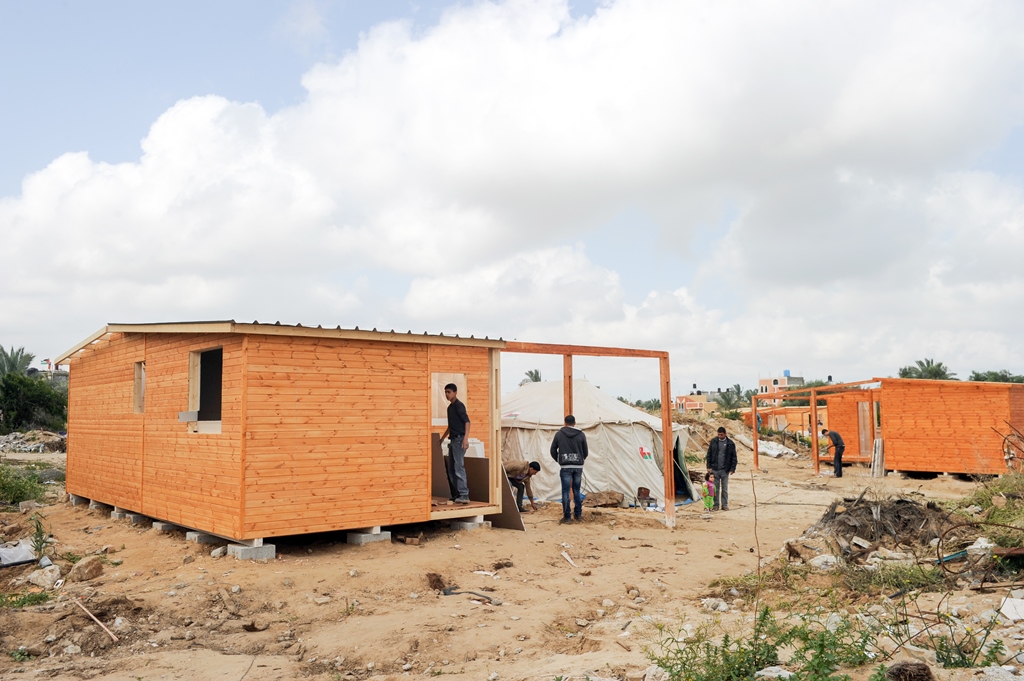
A roof over their heads
18,000 homes in Gaza were destroyed during the airstrikes, and everyone knew that, even with massive international aid, replacing them would take a very long time. It wasn’t until over a year later after the conflict ended that the first completely destroyed home was rebuilt: this was due to restrictions on the import of construction materials. While the bombing continued, people camped out in schools, but when the schools were eventually able to reopen they had to find other solutions. Some moved into tents or caravans, others squashed in with relatives. With CAFOD support, Catholic Relief Services – Jerusalem was able to provide transitional wooden shelters, well-designed but quick to construct, for bombed-out families.
Find out more about what our partners are doing in Gaza
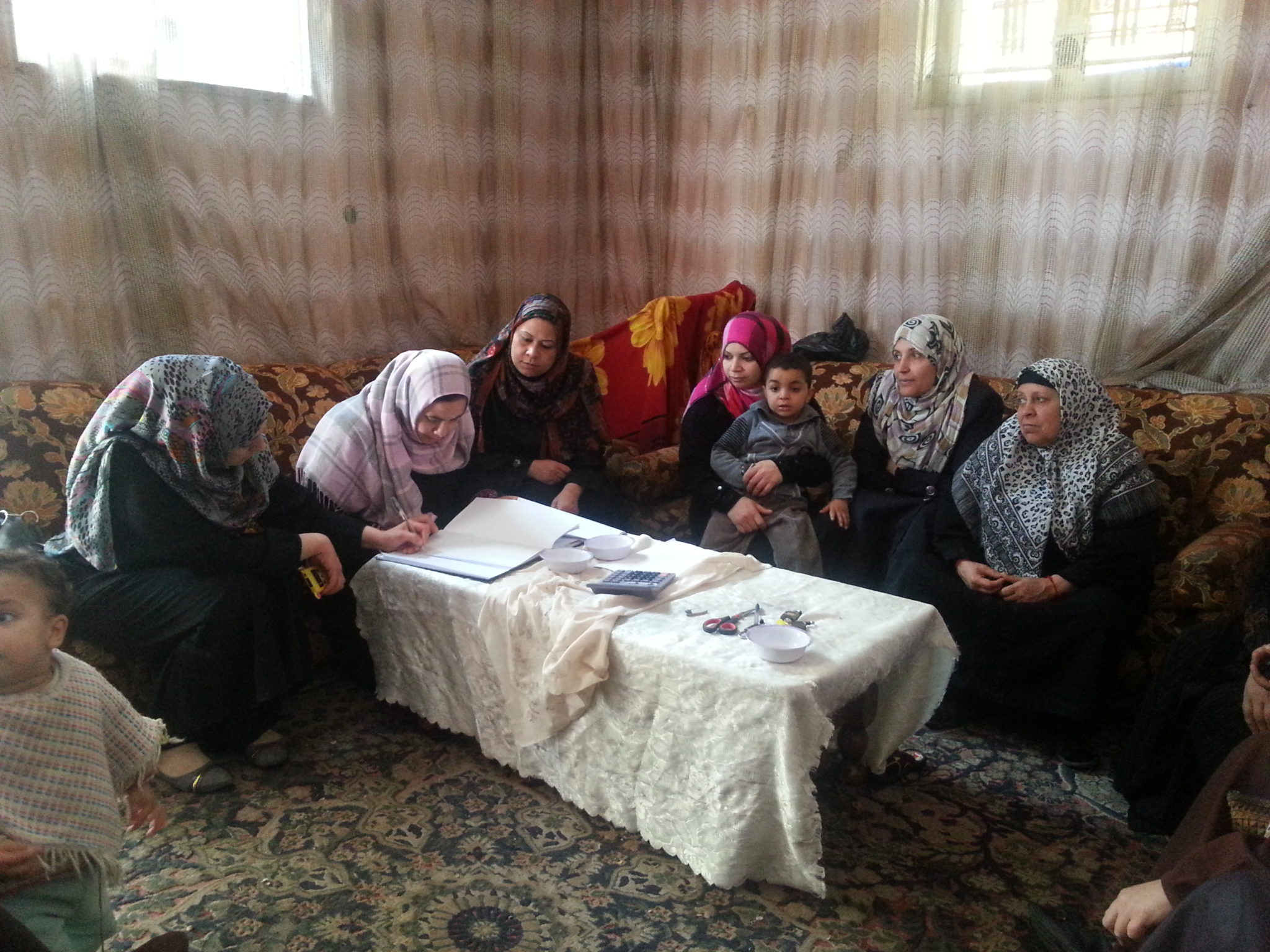
A financial cushion – and lots of new friends
With Catholic Relief Services, CAFOD has since 2013 been supporting a project known as “Bedayia” (meaning “Start” in Arabic), to help people build up their resources and plan for the future, so as to be better able to cope with the regular difficulties of living in Gaza.
Savings and Internal Lending Community (SILC) groups are formed whose members learn to save regularly, and can take out small loans by agreement with the group. They can save up either for a time when they know they will face heavy expenses, or else to start a small business. After the 2014 airstrikes, families could draw on their savings, and this helped them recover more quickly from the crisis. Specialist courses are now being offered on the SILC methodology for selected local Gazans, to enable them to qualify as trainers and consultants, so the process can continue without outside help.
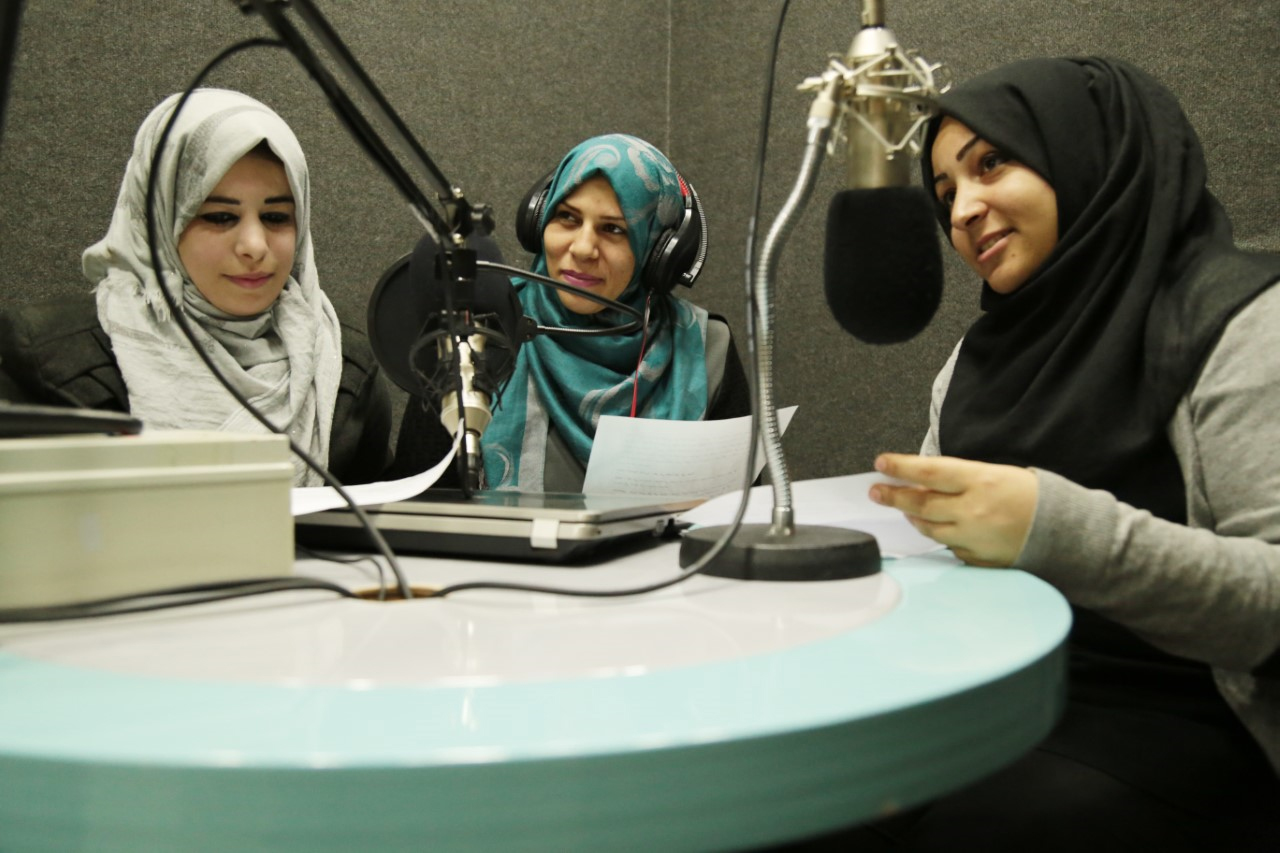
Young people active for change
CAFOD recently began supporting the work of the Culture and Free Thought Association (CFTA) in the Khan Younis area, a part of Gaza particularly badly devastated by Operation Protective Edge. CFTA engages with young men and women aged 20-35, giving them space to share ideas, learn while doing, learn from and support each other. Through their involvement with the Kalket Radio station, which is entirely run by youth volunteers, they are able to acquire communication and leadership skills, as well as technical skills in taking photos, sound editing and doing radio broadcasts. Thus they develop their creativity, build confidence and a sense of purpose and belonging, and become active change makers in their communities.
Please donate what you can to our Advent appeal to help more people around the world
One thought on “What CAFOD is doing in the Gaza Strip”